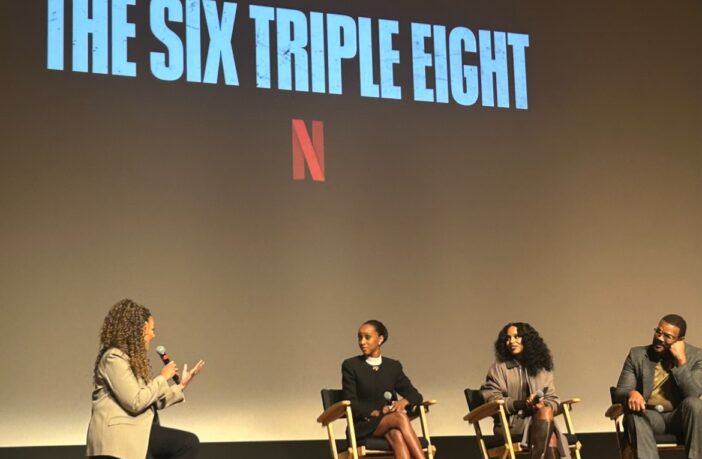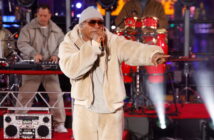After learning of their courage despite the triple conflicts of racism, sexism and war, celebrated director and producer Tyler Perry leaped at the opportunity to tell the story of the Six Triple Eight (6888), an all-Black woman postal battalion that boosted the morale of soldiers through their work in World War II.
While these American heroines have been somewhat hidden figures throughout history, Perry’s “The Six Triple Eight,” streaming on Netflix and starring Kerry Washington, is more than just a historical story of resilience, it’s an inspiring tale that offers hope for the future.
Following a premiere at the Oprah Winfrey Theatre in the Smithsonian National Museum of African American History and Culture (NMAAHC), Perry, Washington, and the film’s co-star Ebony Obsidian, reflected on the women behind the movie, in a conversation moderated by Michele Norris of MSNBC.
“The Six Triple Eight’s assignment was hope. In some ways, right now in America, our assignment is hope,” Norris said, before encouraging the artists to consider their own notions of hope after having worked on the film.
Perry, having learned of the Six Triple Eight not long before diving into research for the film and getting to know the woman behind Obsidian’s character, Lena Derriecott King, said it’s important to understand the context in which these women rose to the occasion, to truly see the breadth of their strength and heroism.
“If you could just take yourself out of the moment right now and just think about these women. They were in the Army, there was still segregation. Racism would have been very different for them… but yet, they advocated and found a way, and made a way for all of us here now,” said Perry. “If you take every moment you’re given and make the absolute best of it and try to move not only yourself forward, not only your race forward, but everyone forward, collectively, that’s my hope.”
Washington shared her biggest takeaway from the film having played Major Charity Adams, who valiantly led the Six Triple Eight to help them overcome the hard task of organizing the massive backlog of mail that had not been delivered to soldiers abroad or to their families back home during World War II. Not having mail meant low morale for the soldiers, and worry for the families who anxiously waited to hear from their loved ones.
“I think one of the elements that the film brings into people’s heart is this understanding that no matter how underestimated you are, or how doubted you are, no matter the limitations that people put on you for whatever reason, that you have the capacity to excel– succeed, surpass,” Washington said. “These women solve this seemingly impossible problem because they came together and they honored each other’s superpowers, each other’s individual talents.”
She said her hope is that audiences can be empowered by the women’s story to help face challenges today.
“I want us to be reminded of our capacity to solve the seemingly impossible problems that we face by leaning into each other and into community, into a belief that other people’s limitations, other people’s limited beliefs about us do not define us.”
Obsidian said that she enjoyed bringing King’s strong story to life– transforming from a “charmingly simple,” girl with “humble beginnings” to a key figure in the battalion.
“It’s the average person who wins. It’s the average person who changes our entire future. It’s not the one that someone else says is the great one,” Obsidian declared.
Washington, a celebrated actress, known for her role as Olivia Pope in “Scandal,” highlighted the power of Perry’s storytelling, particularly emphasizing the ability for him to broaden audiences’ perspectives through film.
“He has proven the idea that everybody deserves to be the hero in the story of their life, that none of us is born a supporting character, that we are each the lead character in the story of our lives, and he makes that real by making these women the lead characters.”



